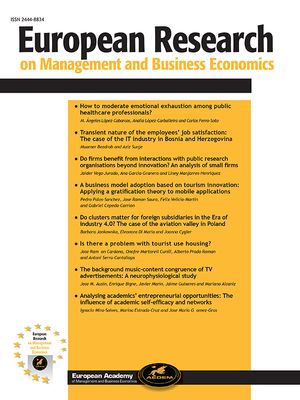En la literatura sobre ética empresarial, encontramos un importante número de trabajos centrados en establecer marcos de comprensión sobre qué es lo que conduce a un individuo a comportarse de una manera ética o no ética. Sin embargo, los modelos propuestos hasta el momento son excesivamente generalistas, sin concretar aquellos factores que, desde la literatura empírica, se presentan como más destacados en materia de influencia. El propósito de este trabajo es desarrollar un modelo explicativo que permita la mejor comprensión de los principales factores que influyen sobre el comportamiento ético del empleado. Para ello revisamos las aportaciones más significativas realizadas sobre esta cuestión y planteamos una serie de proposiciones teóricas que definen el modelo explicativo. Finalizamos el trabajo con la discusión del modelo, la extracción de una serie de conclusiones y la propuesta de futuras líneas de investigación.
In the literature on business ethics a large number of studies can be found with a focus on establishing comprehension frameworks concerning the factors which make an individual behave ethically or unethically. However, the models proposed up to the present moment are excessively generalists, as there are no specifications on those factors which are presented as more prominent in terms of influence according to the empirical literature. The purpose of this paper is to develop an explanatory model that in addition to allowing a better comprehension of the main factors influencing on the individual's ethical behaviour. For this aim we review the most significant contributions in the literature on this aspect and raise a series of theoretical propositions which define the explanatory model. Finally we present the discussion of the model, thus drawing a series of conclusions and proposing future lines for research.





